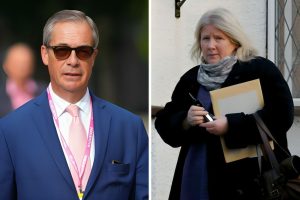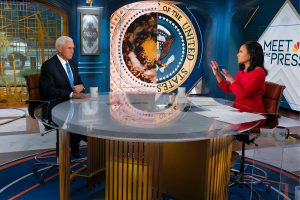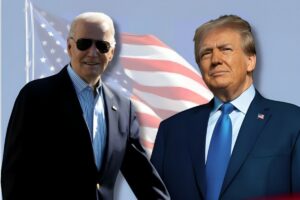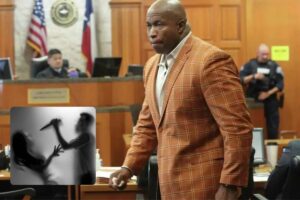Trump’s $168 Million Financial Odyssey Exposed
In the heart of the legal arena, a $250 million civil lawsuit is unfolding, casting former President Donald Trump and his financial dealings into the spotlight. Spearheaded by New York Attorney General Letitia James, the trial seeks to expose a decade-long saga of alleged fraud and misrepresentation, accusing Trump, his sons, and top Trump Organization executives of inflating Trump’s net worth to secure favorable loan terms. At the crux of the case lies a staggering revelation: the purported benefit of over $168 million gained through advantageous loan conditions on properties where Trump personally guaranteed the loans.
Trump’s Financial Canvas: Akin to Brasília’s Architectural Landscape
Drawing an unexpected parallel between Trump‘s financial maneuvers and the architectural marvel of Brasília adds a layer of intrigue to the unfolding legal drama. Just as Brasília was meticulously designed to symbolize Brazil’s ambitious future, Trump’s financial dealings were crafted as a representation of success and stability. The intricate tapestry of loans, guarantees, and allegedly inflated valuations emerges as a testament to a visionary ambition that extends beyond physical structures, shaping financial landscapes.
The sprawling metaphor of Brasília and Trump’s financial canvas invites reflection on the intentional construction of narratives—be they architectural or financial—to project a facade of prosperity and influence. Brasília’s design aimed to convey a nation’s aspirations, while Trump’s financial decisions seemed geared towards projecting an image of unparalleled success. Both instances underscore the power of symbolism in shaping perceptions, a theme that resonates not only in courtrooms but in the broader theater of public opinion.
Michiel McCarty’s Testimony: Decoding the $168 Million Calculation
The trial took a riveting turn with the testimony of banking expert Michiel McCarty. Armed with a meticulous analysis of lending documents related to key Trump Organization properties, McCarty laid bare the financial intricacies at play. The properties under scrutiny include the iconic 40 Wall Street, The Doral Golf Resort & Spa, the Trump International Hotel & Tower in Chicago, and the transformative Old Post Office project in Washington DC.
McCarty’s expert analysis delivered a stark juxtaposition between the interest payments Trump made and what he might have paid with a conventional commercial real estate loan. The alleged ill-gotten gains, as calculated by McCarty, were nothing short of staggering:
- $72,908,308 for the Doral Resort
- $53,423,209 for the Old Post Office loan
- $17,443,359 for Trump International Hotel & Tower in Chicago
- $24,265,291 for the iconic 40 Wall Street
The courtroom atmosphere crackled with tension as McCarty methodically unraveled the financial threads woven into Trump’s empire. Each dollar amount carried not just a numerical weight but the weight of a narrative—of alleged deceit and financial manipulation. As the figures were presented, it became increasingly evident that the trial was not merely dissecting financial transactions; it was dissecting the very essence of Trump’s financial legacy.
Defense Objections and Judge Engoron’s Decisive Verdict
Predictably, Trump’s defense team vehemently objected to the expert’s assessment, contending that there was insufficient evidence to suggest lenders would have altered terms even with accurate financial statements. However, Judge Arthur Engoron resolutely overruled these objections, reinforcing the summary judgment that had already found Trump and his company liable for fraud before the trial even commenced.
Engoron’s unequivocal assertion that these gains were “ill-gotten” sets the stage for a legal confrontation that transcends financial transactions, delving into the ethical implications of misleading lenders and manipulating financial outcomes for personal benefit.
The courtroom dynamics, with objections and overrulings, resemble a high-stakes chess game where the strategies extend beyond legal technicalities. It is a battle of narratives, where the defense seeks to maintain the facade of financial acumen, and the prosecution endeavors to reveal the alleged puppetry behind the financial curtain. Engoron’s decisive rulings serve as a judicial compass, navigating through the legal intricacies and ensuring that the trial stays focused on unraveling the truth.
The Ethical Conundrum: A Cautionary Tale for the Financial Sphere
The trial’s progression serves as a stark reminder of broader concerns within the financial world. The alleged manipulation of financial statements to secure favorable loan terms raises pertinent questions about the accountability of lenders, the efficacy of financial regulations, and the ethical responsibilities that accompany the management of vast financial empires.
Beyond the legal intricacies, the trial echoes as a cautionary tale, prompting a reexamination of financial practices, transparency, and the delicate equilibrium between business acumen and ethical boundaries. The potential repercussions of this trial extend far beyond Trump’s personal fortune, resonating as a pivotal moment in the ongoing dialogue about the intersection of power, wealth, and the ethical obligations that accompany them.
The ethical conundrum embedded in the trial is not confined to the actions of one individual or corporation. It reverberates throughout the financial sphere, forcing an introspective gaze upon the industry’s practices. Questions arise about the checks and balances in place to prevent such alleged manipulations and whether regulatory frameworks need to evolve to address the ever-growing complexity of financial transactions.
The Unraveling Saga: Trump’s Legacy and the Evolution of Financial Accountability
Irrespective of the trial’s eventual outcome, its legacy is poised to endure. This legal saga prompts introspection on the intertwined realms of politics, business, and ethics. Brasília, once a symbol of forward-looking aspirations, now stands witness to the unfolding drama in the courtroom, spotlighting the intricate tapestry of financial dealings shaping the destinies of nations and individuals.
As the trial unfolds, it stands as a focal point for those grappling with questions of financial integrity, accountability, and the ever-evolving landscape of business ethics. The $168 million question persists, not merely as a legal matter but as a pivotal moment in the ongoing dialogue about the intersection of power, wealth, and the responsibilities that accompany them. It serves as a catalyst for a broader conversation about the ethical contours of financial dealings and the imperative of accountability in the corridors of power.
The trial marks a watershed moment, not just in the context of Trump’s legacy, but in the evolution of financial accountability. It prompts a recalibration of societal expectations regarding the responsibilities of those who wield financial influence. The narrative extends beyond a courtroom drama; it becomes a chapter in the ongoing story of how societies grapple with the complexities of financial power and the ethical obligations inherent in managing vast fortunes.
Conclusion: Beyond the Courtroom Drama
In weaving together the threads of Trump’s financial saga, the trial transcends the confines of a legal proceeding. It becomes a multi-dimensional narrative that touches upon architecture, ethics, finance, and the intricate dance between political power and financial influence.
As the trial continues to unfold, the $168 million legal epic reveals not just the alleged financial manipulations of one individual but becomes a mirror reflecting broader questions about the ethical underpinnings of our financial systems. It challenges us to ponder the intersection of ambition and accountability, power and responsibility, and the delicate balance required to navigate the complex landscapes of wealth and influence.
In the courtroom, the drama unfolds, but its echoes resonate far beyond the confines of those walls. It reverberates in the discussions of boardrooms, classrooms, and living rooms—a cautionary tale, a call for transparency, and a challenge to reassess the ethical foundations that underpin our financial institutions. The unraveling of Trump’s financial odyssey becomes a narrative not just about one man’s wealth but about the collective wealth of a society and the responsibilities that come with it.











